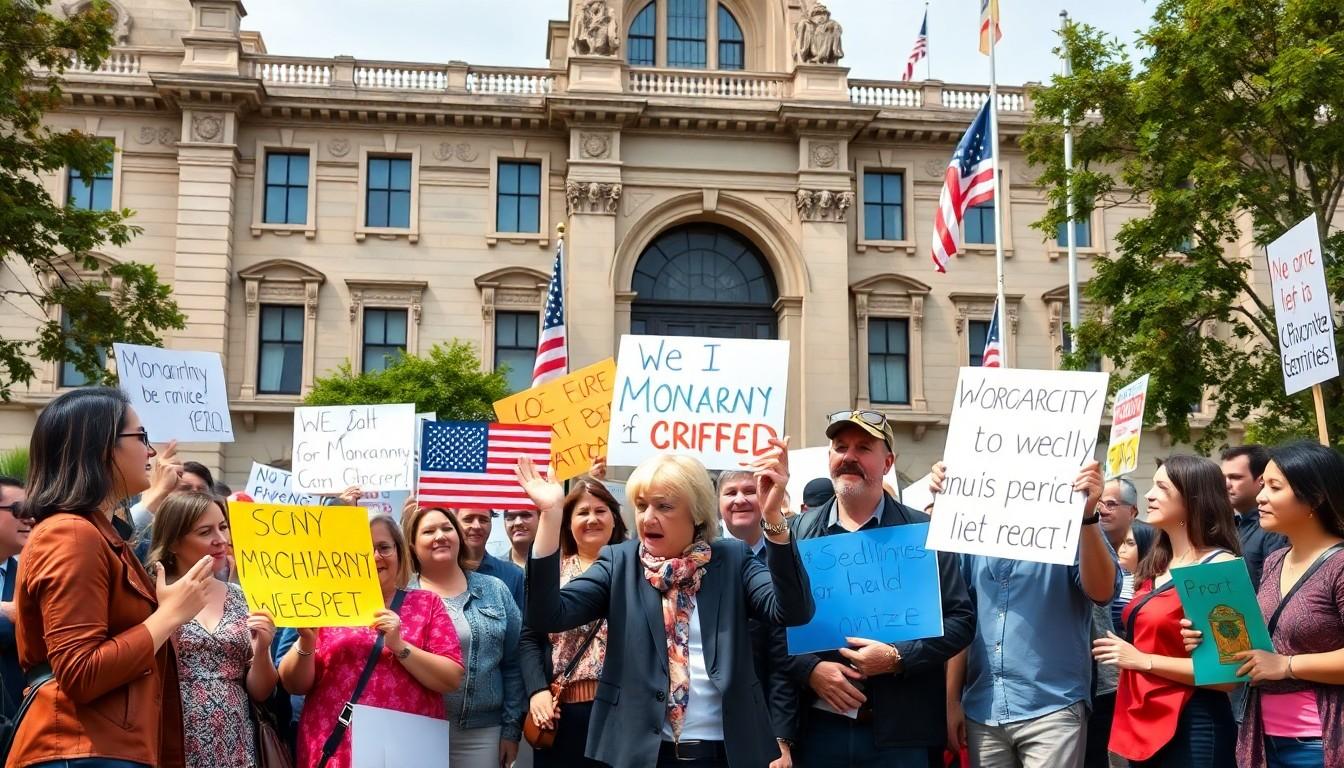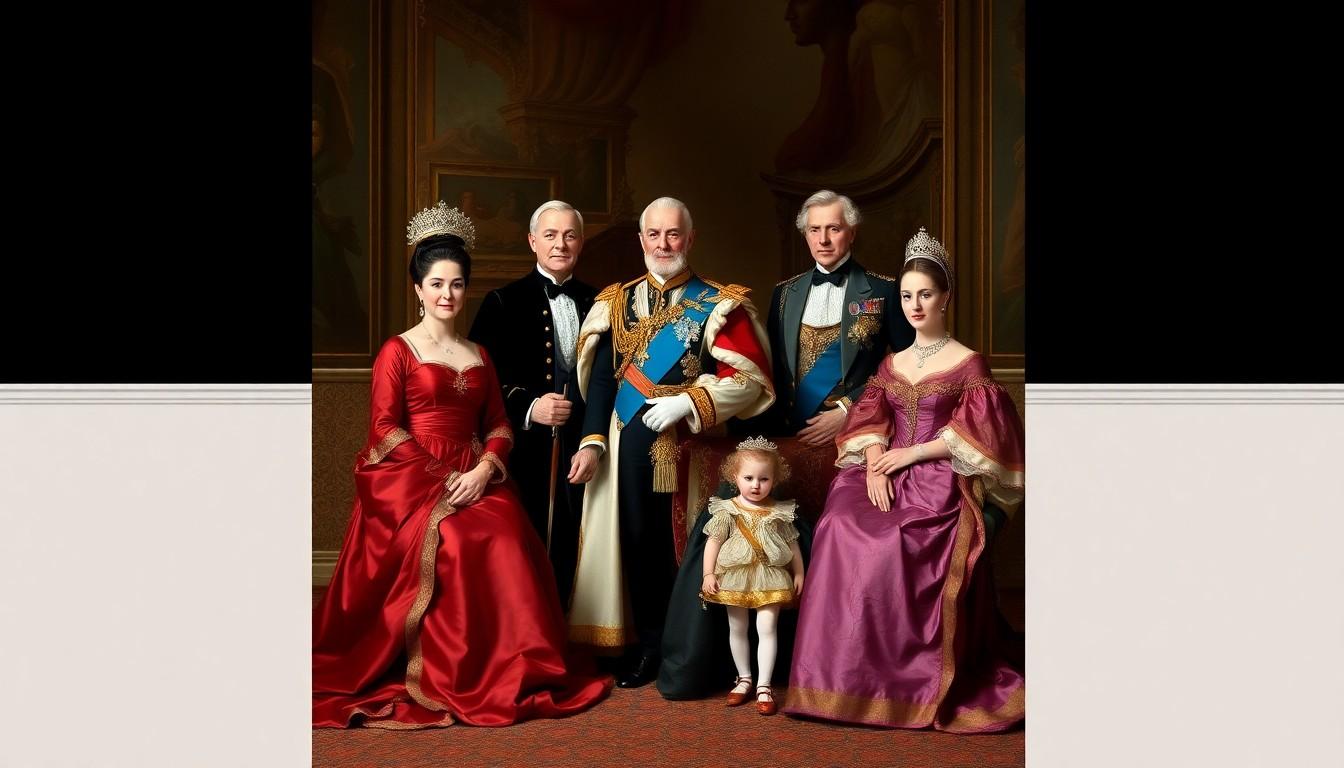Phone:
(701)814-6992
Physical address:
6296 Donnelly Plaza
Ratkeville, Bahamas.

Public opinion on royals is a fascinating rollercoaster ride, full of twists, turns, and the occasional tiara toss. From scandalous headlines to charming royal engagements, these modern-day monarchs manage to keep everyone talking—whether it’s love, drama, or a new royal baby. It’s like a never-ending soap opera, and who doesn’t love a good drama?
Public opinion on royals fluctuates significantly, driven by a variety of factors. Scandals involving royal family members often lead to public outcry or increased interest, showcasing the complexities of their influence. Royal engagements and significant life events, like weddings and births, consistently capture media attention and shape perceptions.
Survey data reveals that support for monarchy varies across different demographics. Younger generations tend to express skepticism about the institution compared to older groups. Despite this, royal family members, particularly those who engage in charitable work, receive positive views from many.
Events like family controversies or the portrayal of royals in popular culture impact public sentiment as well. Media coverage plays a crucial role in shaping narratives surrounding the royals, either favorably or unfavorably. Public opinion is also influenced by how royals adapt to modern societal expectations, with some embracing transparency and others maintaining traditional roles.
Individuals often engage with royal news through social media, leading to diverse perspectives and rapid dissemination of opinions. Polling organizations frequently measure these attitudes, revealing shifts in support or discontent over time. As new events unfold, public interest remains high, ensuring that royals stay relevant in global conversations.
Statistical data from recent surveys illustrate the divided views on monarchy, emphasizing the need for ongoing research in this area. For instance, approximately 60% of respondents in a recent survey support maintaining the monarchy, while 30% advocate for its abolition.

Public opinion on royals has a rich history shaped by significant events and evolving societal values.
The monarchy has transformed over centuries, responding to changing political landscapes and public expectations. Early monarchs held absolute power, while modern royals often operate within constitutional frameworks. Increased democratic ideals have driven this shift, resulting in a monarchy that balances tradition with contemporary relevance. As royals engage in charitable activities, positive perceptions flourish among the public. The younger generation expresses ambivalence, reflecting evolving attitudes toward authority and privilege.
Major events significantly impact public sentiment toward royals. The abdication crisis of King Edward VIII marked a pivotal moment, leading to increased scrutiny of royal decisions. The tragic death of Princess Diana in 1997 elicited profound emotional responses and sparked debates about royal responsibilities. Recent royal weddings, like Prince Harry and Meghan Markle’s, attracted widespread media coverage, influencing perceptions of the institution. Scandals also play a role; negative publicity often correlates with declining support. Ongoing polling reveals fluctuating allegiance, with approximately 60% favoring monarchy retention amid public discourse.
Public opinion on royals remains fluid, reflecting the ongoing societal conversations surrounding monarchy. Understanding the nuances of sentiments toward royals involves analyzing data sources and recognizing the digital landscape’s influence.
Recent surveys reveal that approximately 60% of participants support maintaining the monarchy, while around 30% prefer its abolition. Demographic analysis uncovers differences in attitudes, with younger individuals often displaying skepticism. Older generations, in contrast, exhibit greater loyalty toward royal traditions. Moreover, specifics like royal charitable efforts tend to enhance public approval, highlighting the importance of perceived positive actions. Continuous polling demonstrates that public loyalty fluctuates based on royal events and media narratives.
Social media plays a pivotal role in shaping public opinion on royals. Platforms like Twitter and Instagram create spaces for diverse discussions, amplifying individual voices. Engagement with royal family content often showcases varying perspectives, impacting overall sentiment. Expectations for transparency affect opinions, especially when royal members share candid insights into their lives. Media outlets capitalizing on viral moments can rapidly sway public sentiment, driving trends in debates about monarchy. Overall, social media accelerates feedback loops, ensuring public discourse remains lively and relevant.
Public opinion on royals varies greatly across different monarchies. The following case studies illustrate these differences and provide insight into current trends.
Recent surveys show that approximately 60% of participants in the UK support the monarchy. Younger demographics, however, express more skepticism than older generations. Engagement with royal activities, such as charitable initiatives and public appearances, tends to improve public sentiment. Scandals and controversies, like those surrounding Prince Andrew and Meghan Markle, have sparked intense media coverage, influencing public opinion. Royal family adaptability to modern values contributes significantly to their public image, underscoring the importance of transparency and engagement.
Support for monarchies outside the UK shows diverse trends. In Spain, polling indicates a split opinion, with 50% in favor of the monarchy and 48% expressing concerns about its relevance. Scandinavian monarchies often enjoy favorable views due to their perceived approachability and philanthropic efforts. Countries like Thailand face challenges, as varying sentiments about the monarchy can fluctuate following political tensions. Public opinion surrounding global royals reinforces the idea that each monarchy’s public standing deeply depends on local culture and recent events.
Public opinion on royals evolves through various influencing factors. Key elements include media representation and political context.
Media representation plays a pivotal role in shaping perceptions of royal families. Coverage of royal engagements, charitable activities, and controversies can sway public sentiment, with sensationalized stories often garnering more attention. For instance, the portrayal of Meghan Markle and Prince Harry in the media reflects significant divisions in public opinion. Engaging stories can create admiration, while negative portrayals frequently result in backlash. Regular polling indicates that positive coverage correlates with increased support for the monarchy, while scandals diminish trust and loyalty among citizens.
Political context significantly impacts public sentiment toward royals. During times of political unrest, public approval may dip for monarchy members seen as out of touch. For example, England’s monarchy historically faced scrutiny during political upheavals or economic crises. Conversely, when royals align with political movements or engage in advocacy, their popularity can improve. Recent events underscore the importance of political relevance, as public opinion remains closely linked to how royals navigate their roles amid shifting societal expectations.
Public opinion on royals is a captivating and ever-changing landscape. Factors like media portrayal scandals and significant life events continually shape how the monarchy is viewed. While support remains relatively strong among older generations younger individuals often express skepticism.
Charitable engagements and public appearances can bolster positive sentiment while controversies can quickly shift perceptions. Social media amplifies these dynamics allowing for rapid shifts in opinion. As society evolves so too does the monarchy’s relationship with the public. Ongoing research is essential to understand these trends and the factors that influence them. The monarchy’s ability to adapt to modern expectations will likely determine its future relevance in the eyes of the public.